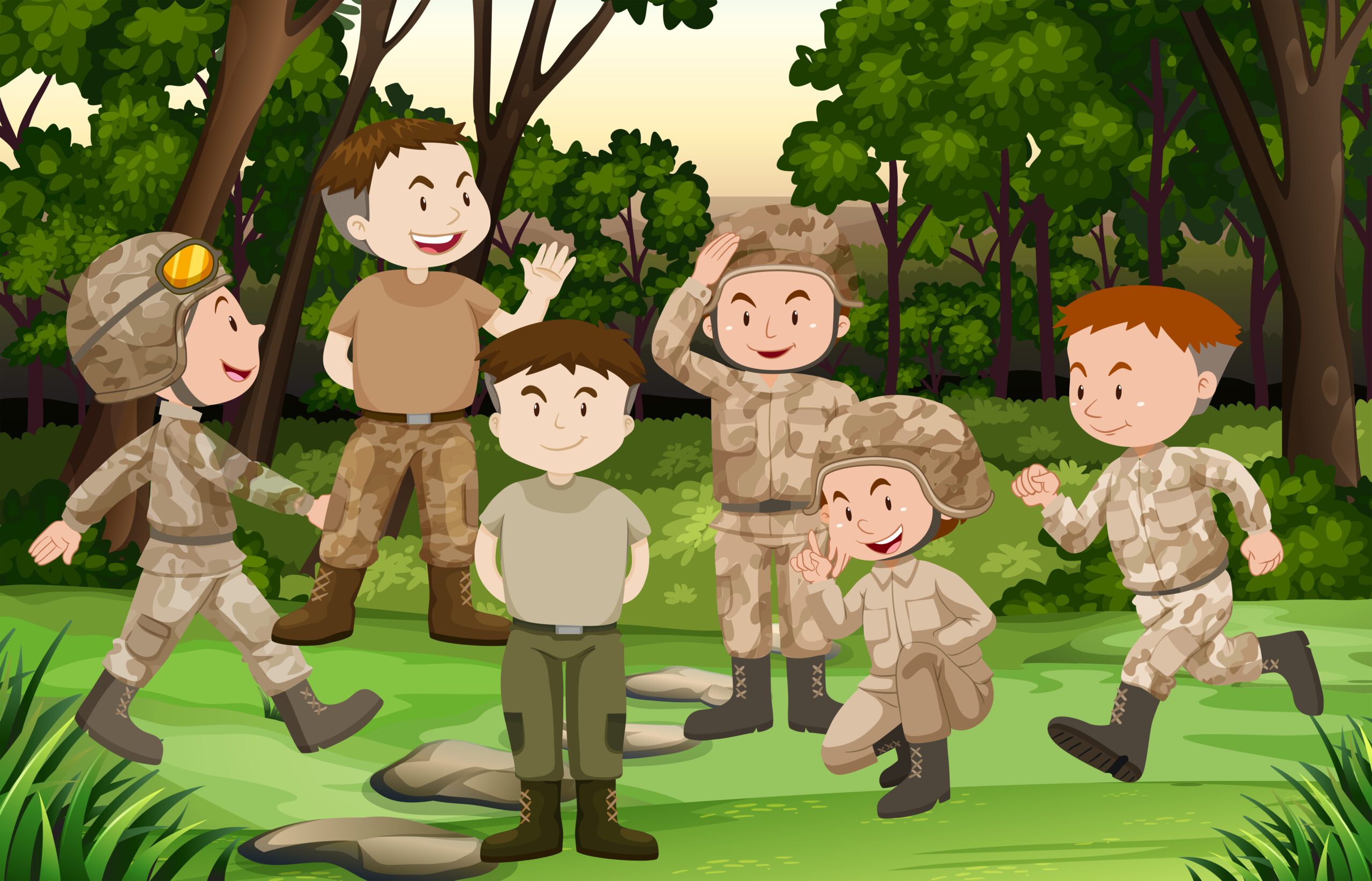Unsung Heroes at Home: The Art of Positive Parenting in Military Families

In the bustling heart of a military family, discipline meets warmth in a unique blend known as positive parenting, a nurturing force that is shaping the next generation of resilient, adaptable, and community-minded individuals. Imagine children who transform the challenges of frequent relocations and parental deployments into opportunities, developing diverse skill sets and cultural adaptability most of their peers can only dream of. These youngsters aren’t just surviving; they’re thriving, thanks to the unique life skills and iron-clad family bonds forged by the demands of military life. Within these extraordinary families, the regimented structure of military culture and the enriching experiences of different worlds cultivate an environment where children evolve into dynamic, empathetic, and robust adults.
Unseen Battles: Understanding the Challenges and Complexities of Military Children’s Lives
Despite the remarkable resilience military children often demonstrate, they face a unique set of challenges that can cast long shadows over their developmental years. These children experience frequent disruptions due to moves, changes in schools, and the absence of a parent deployed on duty, factors that numerous studies highlight as potential stress points. According to a study published by the American Academy of Pediatrics, they can experience higher levels of emotional and behavioral difficulties compared to their civilian peers [1].
One significant concern that emerges from these familial pressures is the “military family syndrome,” a controversial term initially introduced in the 1970s. This concept encapsulates the range of emotional and behavioral issues that some psychologists observed among children in military families, including increased instances of anxiety, stress, and interpersonal difficulties (Jensen et al., 1996) [2]. Critics of the “syndrome” label argue that it pathologizes the wide range of normal adaptive responses children might have to the unique lifestyle.
The work-life balance for serving parents can tilt heavily on professional obligations, affecting familial relationships. The Parenting for Service Members and Veterans (2014) [3] program, launched by the U.S. Department of Veterans Affairs, acknowledges these strains, noting that repeated deployments can disrupt children’s sense of security, leading to challenges like academic struggles and social isolation.
Moreover, a study in the “Journal of Developmental & Behavioral Pediatrics” suggests that the emotional well-being of the parent remaining at home, often overlooked, plays a critical role in how these children cope with the stresses of their situation [4].
Standing Firm: The Uphill Struggle of Parenting in Uniform
While kids navigate their unique challenges, parents confront a distinct battleground of their own, striving to balance service and family, often under the strains of extended separation and the psychological toll of conflict zones. Their parental roles are frequently disrupted or magnified due to the demands of military service, which can lead to a deep-seated feeling of guilt and helplessness when they can’t always be present for significant milestones or everyday dilemmas that shape their children’s lives.
A study by the RAND Corporation highlights that military parents are more likely to bear witness to behavioral changes and emotional distress in their children, inducing a heightened sense of concern and stress for the parent, particularly those deployed [5]. These findings suggest a cyclical nature of stress, where the kid’s reaction to military life further impacts the parent’s mental and emotional state, potentially affecting their professional performance and personal well-being.
Moreover, military service’s unpredictability means that these parents often miss out on the consistent support networks that civilian families access, like local family, friends, and community groups, which are crucial for advice and emotional support. They must build and rebuild these networks with every relocation, all while maintaining a sense of normalcy for their children.
Additionally, military mothers face their own set of challenges, as they might also grapple with societal pressures and gender expectations within the military community and broader society. This includes the struggle of being away from children due to service obligations, which traditionally conflicts with expected maternal roles.
The commitment to serve and protect takes on a deeper, more personal resonance for military parents. Their battles are fought on two fronts, ensuring national security and forging a secure, nurturing environment for their children amidst the inherent uncertainties of military life.

Anchors in Adversity: Embracing Positive Parenting in Military Households
Positive parenting, a nurturing approach that fosters open communication, understanding, and encouragement, takes on a unique, vital form within military families. Amidst the turbulence of frequent relocations, deployments, and the emotional upheavals associated with these changes, positive parenting becomes the keystone for maintaining stability, resilience, and a sense of security within the family unit.
For military families, positive parenting means adapting the principles of respect, empathy, and support to the context of a lifestyle that demands flexibility and strength. It involves creating an inclusive family environment where emotions are acknowledged and expressed freely, helping children adjust to the waves of change and uncertainty. This approach also means establishing consistent family rituals, which can provide a sense of continuity and comfort, and maintaining strong parental presence even when physically apart, through meaningful communication that reinforces love and connectedness.
The benefits of this approach, particularly in a military context, are manifold. Positive parenting practices help buffer children against the stress of their transient lifestyle, fostering psychological resilience. It encourages a more adaptable attitude towards change, preparing children to manage the social and educational transitions that come with frequent moves [6].
Moreover, children in a positive parenting environment develop enhanced problem-solving skills, empathy, and self-regulation, qualities that contribute to more robust mental health [7]. This style of parenting builds a bridge over the gaps left by absent parents, maintaining the emotional intimacy between the child and the deployed parent, which is crucial for the child’s sense of stability and security.
In essence, positive parenting within military families is less a strategy and more a dynamic lifeline, continually thrown across the rough seas of service life, ensuring that no member of the family is left adrift.

